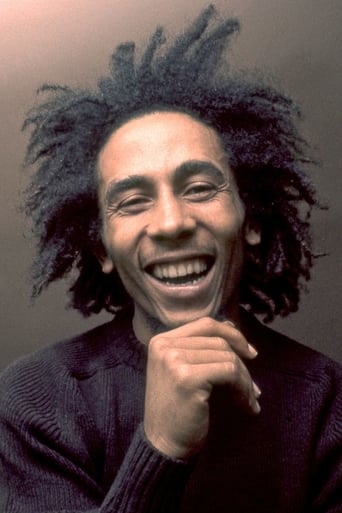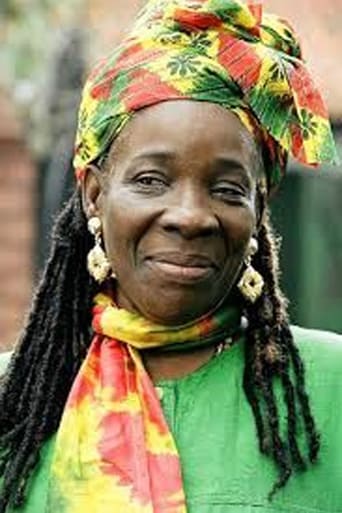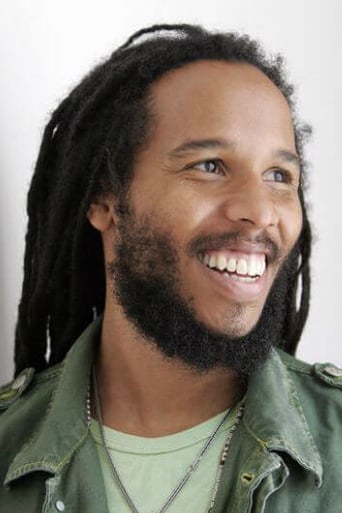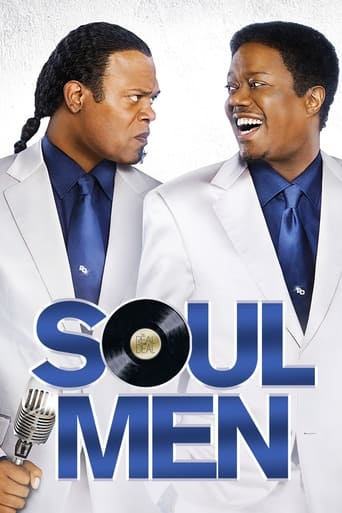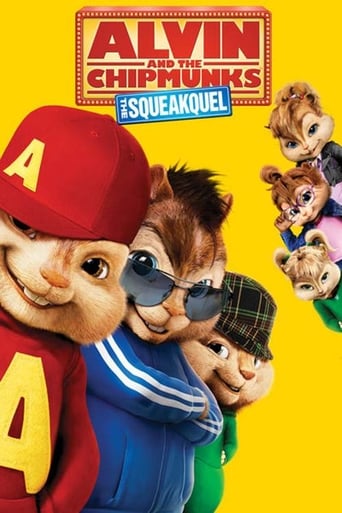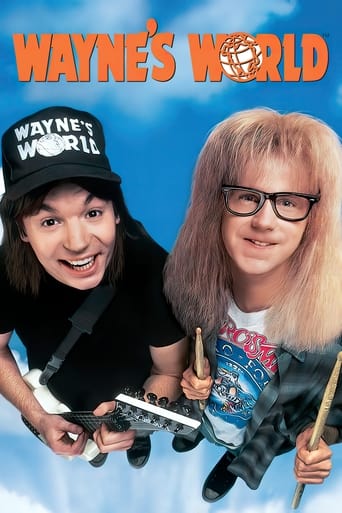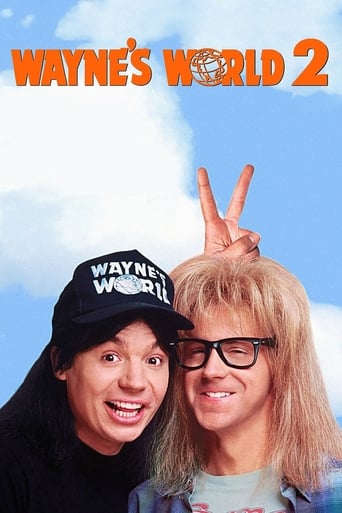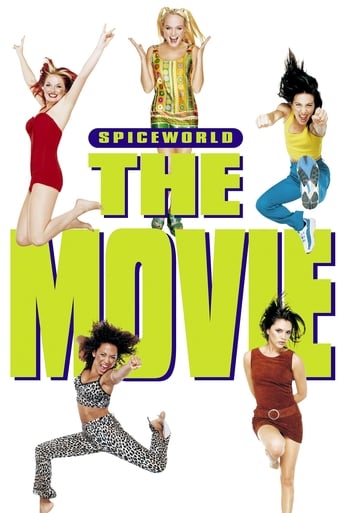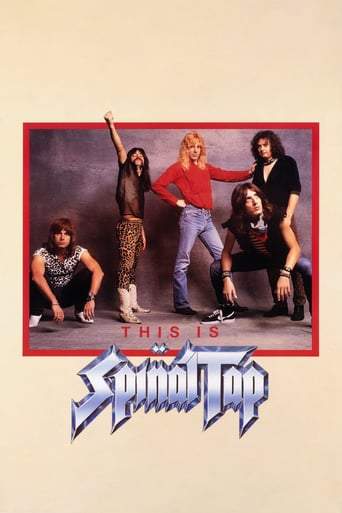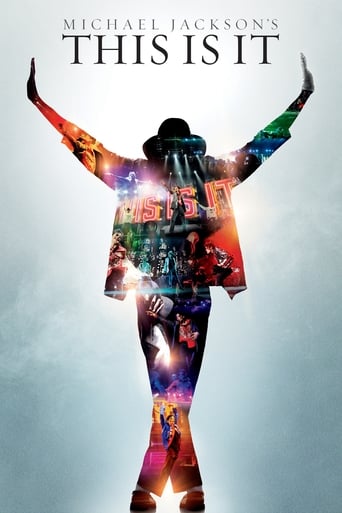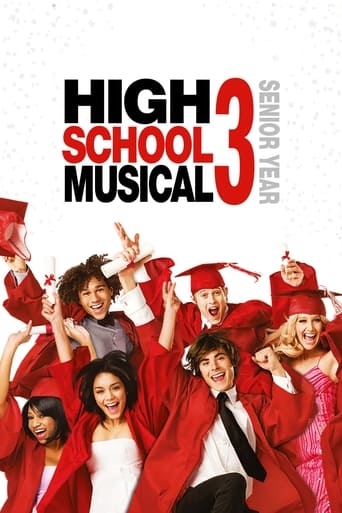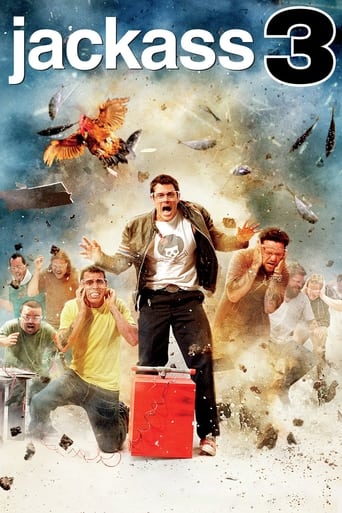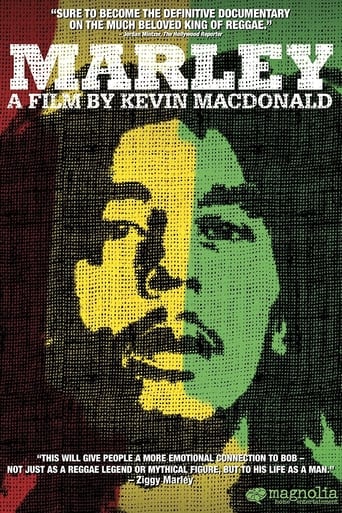
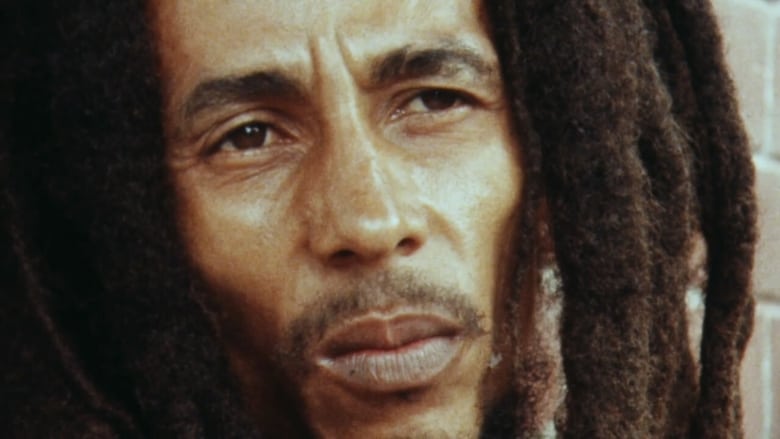
Marley (2012)
Bob Marley's universal appeal, impact on music history and role as a social and political prophet is both unique and unparalleled. Directed by Academy Award-winning director Kevin Macdonald (The Last King of Scotland), MARLEY is the definitive life story of the musician, revolutionary, and legend, from his early days to his rise to international superstardom. Made with the support of the Marley family, the film features rare footage, incredible performances and revelatory interviews with the people that knew him best.
Watch Trailer
Cast


Similar titles
Reviews
Marley Film Review The life and times of Bob Marley could be an appropriate description for the documentary entitled "Marley". Marley covers the journey of Robert "Bob" Marley, a popular Reggae Singer/ Songwriter from the Sixties to the Eighties. The documentary encompasses Bob Marley's humble beginnings as well as his rise to fame. Bob Marley plays himself, as does his son Ziggy, Rita and Cedella Marley. What made Bob such an Iconic figure was his way of forward thinking, his positivity for Unity and Love. The social, cultural and political issues of the times were a major contributing factor to the formulation and creation of Bob's music and eventual legacy. The incorporation of black and white footage, as well as sepia tones help to recreate Bob Marley's story. The dramatic structure of the documentary effectively captures the viewers' attention. The flashbacks and rough grain film stock give you a sense of the struggle at that time. Bob preached Rastafarianism, love, acceptance and unity he was legendary in his thinking, but his music, his music was revolutionary in the most peaceful way. The vibrations of the thoughts behind the words are truly what made Bob Marley's music ahead of its time. He was so aware and so keen to the illusions that were marketed to the world and he changed that by thinking outside of the box. Bob, like Bruce Lee had such a high vibrational frequency that they raised the energy of all around them. Bruce a master of the martial arts used his talents and skills to spread awareness like Bob. Bob even got shot and performed injured. He made a statement along the lines that evil doesn't take a day off and neither should the righteous. Bob Marley like Michael Jackson created very powerful, soulful and healing music. It wasn't about being commercial, it was about being pure. Bob was born to a Caucasian father and an African American mother. Bob and his friends would often go to sleep hungry because they were so poor. Bob Marley was not rich as most would think, his salary was similar to minimum wage, but he never gave up the fight. He was the light in a world of darkness. Humble, quiet and shy were some of the characteristics friends and family remembered of Bob.On and ending note, Bob did so much with so little and changed the fabric of time with his music, forever to be immortalized on the Earth plane. A true icon, a righteous soul fighting the good fight; that was Marley.
There are a number of autobiographical films these days paying tribute to the current crop of musicians, singers and the likes, and are often combined with 3D to milk in the cash since they are going to reach out only to a limited number of fans. So it's quite refreshing to see a biographical one told of a musical legend. For those who have no inkling to who Bob Marley is, or what reggae sounds like and its influence, Marley the documentary is for you, and for Bob Marley fans alike. Directed by Kevin Macdonald, who made films like The Last King of Scotland, The Eagle and State of Play, Marley revisits the music documentary, and it's really an ambitious one given the size and scale of what was covered, and finding that fine balance that can appeal to the serious fan, and the casual movie-goer without alienating them.Macdonald takes his time to tell the story of this influential musician and charismatic performer, who came from humble roots in a small town in Jamaica, before doing what he does best with his band The Wailers, touring the world and spreading their message of love and peace through their music. In 144 minutes, Macdonald provided a very linear presentation in bringing us through the chronological series of events in Bob Marley's life, through a series of talking heads styled interviews with family, friends, and those who have played a significant part in various memorable episodes. You can sense the director's reverence for the subject in having carefully assembled and crafted Marley's various performances into the narrative, as well as digging through countless of archives to look for gems, especially those marking Bob Marley's formative years in Jamaica.Not only were the good put on display, but those that some of us may frown upon as well, got included rather than being glossed over, or deliberately overlooked, such as the growing and smoking of weed, and his rather free loving ways with women, fathering many children with different women. But as the film painted them all out, somehow they all turned out good, with drugs never being part of the tours that made countries go jittery, and the open relationships that somehow got through with tacit understanding, that one may think of as terribly generous.There's really little to say about what's covered in the film, because of its broad spectrum and attention paid to significant portions and incidents in Bob Marley's life, that the curious can probably look up Wikipedia and get the whole tale. But a film allows more to be presented, especially for those who have never seen him live, to have a feel at his stage presence from the archived clips that were carefully curated, even though I'm almost certain some days down the road, or even now, that some would have already turned up on file or video sharing sites. But I digress.Macdonald knows his material, and the film got wonderfully edited in engaging the audience, even when there were moments that dwelled on his lineage and family background, or having to work on deeper issues like his music and Rastafari philosophy, allowing appreciation of matters close to Bob Marley's heart, and to see for oneself in what actually made him tick. Anecdotes from close friends, colleagues, and fellow members of the industry, whether from the studios point of view, or from members of his band who had come and gone, all brought out different facets of the man's life, whether from the angle of him being the consummate professional, the inspirational songwriter, or seen during his leisure activities in running and football.It's also history on film, with how Macdonald reminded how closely tied Bob was to the politics of his home town, and the political infighting that had threatened to pull the country apart. It is here that I witness first hand the power of music as a unifying force for peace, healing the rift divided by reasons long unknown and diluted, but resolved once again by an artform, which in this case is music, together with Bob Marley's powers of improvisation and sincerity in wanting to make the world a better place, starting with his hometown, country, then other continents, and hopefully one day, the world. His philanthropy, no matter how disorganized it may seem, also got thrust into the spotlight, and from various news reels, interviews, notable quotes, Marley the documentary paints a more than three dimensional look at the man behind the music.If you're not a fan of Bob Marley or have never listened to any of his music, Marley will urge you to do so by the time the end credits roll, as I doubt the reggae sounds will not cause you to be moved, or spark an interest in wanting to know, and listen to more. A staggering discography of more than 60 songs got packed into this documentary to provide like a quick overview to the music of a legend, and if you aren't a fan, chances are that Kevin Macdonald would have made you one by the time you're through. Highly recommended and into my shortlist as one of the best of the year!
Several years in the making, and utilizing dozens of interviews with key figures, Kevin Macdonald's documentary about the late, great reggae figure represents something of an achievement for the British director of "The Last King of Scotland" and "One Day in September". While Bob Marley's life has been chronicled by biographers before, most notably in Timothy White's book "Catch a Fire" , Macdonald weaves in the political and the personal to present an enthralling archive of Jamaica and the birth of reggae in the early Seventies.The result is an immensely detailed and satisfying chronology of Marley's life, from his humble beginnings in a poor Jamaican town, Saint Ann parish, his relocation to Trenchtown and then the more salubrious neighborhoods of Kingston, to his early and tragic death of cancer in Bavaria in 1981, aged 36. Marley's last few years prove to be the most fascinating here – as he grapples with his universal fame and the violence tearing through Kingston.These days, Marley's career can often be summed up by a poster – the last king of reggae cuts a smiling, dread-locked figure who features widely in teenage bedrooms all over the world. The musician in "Marley", however, is a more complicated figure. Born to an elderly white British father, the young singer-songwriter was taunted from an early age for his mixed race heritage. He discovered music as a youngster– and eventually moved to Kingston, where he converted to Rastafarianism to combat his early experience of hatred."Marley" is most watchable when explaining the birth of reggae – and the surviving members of The Wailers, his backing group, particularly percussionist Bunny Wailer, carefully recall how some of their best work emerged. One highlight is an interview with notable reggae producer Lee "Scratch" Perry; now with his hair dyed pink, Perry was a formative figure in the sound of the Wailers.Equally illuminating is Marley's personal life. By the time of his death, he had produced eleven children from seven mothers. His daily life was similarly chaotic; lines of people would queue up at his home in Kingston, looking for handouts. None went away empty handed. Even the tragedy of daily violence in Kingston did not deter him. Marley was shot in a botched assassination attempt in the city, but persevered to give two free concerts in an endeavor to end the bloodshed.All of this, of course, is presented with some truly memorable archive footage. As one might expect, Marley's music looms large throughout, and Macdonald has mined dozens of resources to show the reggae star at work. There is a thrilling concert to commemorate the birth of Zimbabwe (featuring both Robert Mugabe and Prince Charles), as well as tours of Europe and the US. Most stirring, though, are those two concerts in his native Kingston. While his Rastafarianism beliefs no doubt encouraged Marley to spread a message of peace across the world, a solution to the political bloodshed in Kingston was a cause he never abandoned. It is a sequence which demystifies the musician, and the closing credits leave us in no doubt as to how his message continues to resonate today.
Saw this in Korea (with Korean subtitles) on the screen in August 2012. I was already familiar and sympathetic with the highlights of Bob's life, the basic ideas of Rastafari, its ties to the Bible, African power movement. From this vantage point, I watched and very much enjoyed the documentary. In fact, after maybe 30 minutes, after watching some of Bob's moving performances - like a mix between a very enthusiastic evangelical preacher, a rock star, and a Yoruba/African trance priest, very much a unique product that could only have come from his roots - I was unable to sit down, and ended up going to the aisle of the theatre to dance with his music. He's got the "juice" or the "power", and the documentary masterfully blends these well-selected performances with interviews from some entertaining and eccentric characters from his life, including fellow artists such as the righteous Bunny Wailer. These interviews were the other emotionally and intellectually moving aspect of the documentary that kept me on my feet and with tears in my eyes at moments, like a revival! Powerful stuff.On the other hand, the documentary hinted at the political and religious ideas which set the foundation for his life, but did not adequately discuss either of these. It gave a brief hint that Rastafari is not about chillums and dreadlocks (note: these are secondary, not core, components of the belief system), and a brief description about the belief system, but it seemed necessary to know how these beliefs tied in with political ideas, since it was apparent that Bob's political ideas were central to the path he took, in Jamaica and abroad. It hints that his political ideas have something to do with Africa (with the visits from Ethiopian emperor Haile Selassie I, mentions about Jamaicans being united as former slaves, and the concert in Zimbabwe which was tear- gassed), but even a short discussion or interview about his political ideas would have lent a better context to the events portrayed in the movie (maybe the director could've replaced some of the rather pointless clips of chillum smoking with this background information). I'm going to have to go to google after writing this review to learn more about this, as the movie piqued my curiosity...Also, as another reviewer suggests, the documentary probably doesn't do a satisfactory job of introducing someone who is unfamiliar with Bob and the related movements to the man and his work (since to many people, he's a poster boy for m*rijuana smoking and dreadlocks). Maybe introducing his political/philosophical ideals as a subtext for his life and work would have clarified this - again, the documentary hints about the power his ideas held for audience members, particularly in Jamaica, but leaves exactly what these ideas are as an unsatisfactory blank.Still, the documentary was very moving given my already somewhat sympathetic/researched vantage point. If you're interested in learning more about the man behind the college dorm posters, or Rastafari in general, I can recommend it as a starting point. Maybe it's a good thing to keep in mind that the people depicted (in Jamaica) are only a few generations descended from slaves taken from Africa, Africa is seen as the "Promised Land" to them, and their current predicament is seen as parallel to the predicament of the Jews in the Old Testament, and they similar Biblical parallels for their current situation. This may help clarify the context in which Bob Marley's life played itself out.


